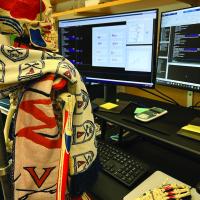Research @ UVA Engineering
Engineering For HealthUVA Engineering is co-located with the top-ranked UVA School of Medicine and UVA Health System, and our culture values and rewards collaboration and initiative.
Research Area
Biomechanics Biotechnology & Biomolecular Engineering Biotechnology and Bioengineering Biomedical Imaging Clinical and Translational Science Systems Biology and Biomedical Data Science Biomaterials, Soft Materials and Tissue Engineering
Clinical and Translational Science
Clear selection
-
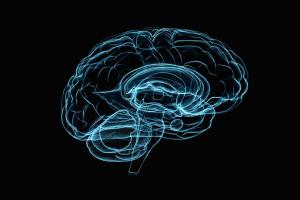
Brain Disorders
Biomedical Engineering UVA biomedical engineers are pioneering novel visualization methods to better understand brain disorders such as Alzheimer’s disease, traumatic brain injury, and stroke. -
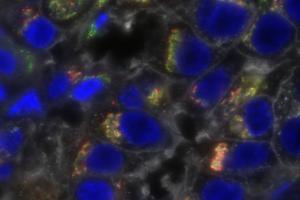
Cancer
Biomedical Engineering Cancer is a multiscale disease of biomolecules, cells, and tissues—engineering approaches provide biomedical insights, diagnoses, and therapies that will ultimately benefit cancer patients. -

Cardiovascular Disease
Biomedical Engineering Cardiovascular disease is the leading cause of death in the world. UVA biomedical engineers are developing the next generation of technologies to diagnose and treat cardiovascular disease through multiscale computational modeling, high-throughput discovery platforms, multimodal biomedical imaging, and targeted delivery of regenerative therapeutics. -
Drug & Gene Delivery
Biomedical Engineering UVA is widely recognized for its strengths in biopanning for novel peptide ligands in vivo, as well as using peptides and antibodies to target the delivery of microbubbles, liposomes and genes in the settings of cancer, cardiovascular and infectious disease. -
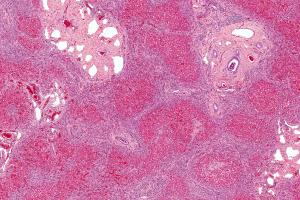
Fibrosis
Biomedical Engineering Our faculty are using computational modeling, systems biology, imaging, biomaterials development, and tissue engineering to understand, image, and treat fibrosis. -

Infectious Disease
Biomedical Engineering The understanding and treatment of infectious disease benefits from multiple engineering approaches, including computational modeling of metabolic networks in pathogens, predictive models of host-pathogen interactions, technology to probe single human parasites, rapid identification of pathogens in clinical samples, and devices for preventing the spread of drug resistant bacteria in hospitals. -
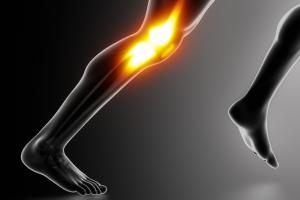
Musculoskeletal Diseases
Biomedical Engineering At UVa we use a suite of experimental and computational techniques to identify, characterize, and exploit guiding principles of musculoskeletal design to understand and improve therapies for musculoskeletal diseases such as Duchenne Muscular Dystrophy and volumetric muscle loss (VML). -
